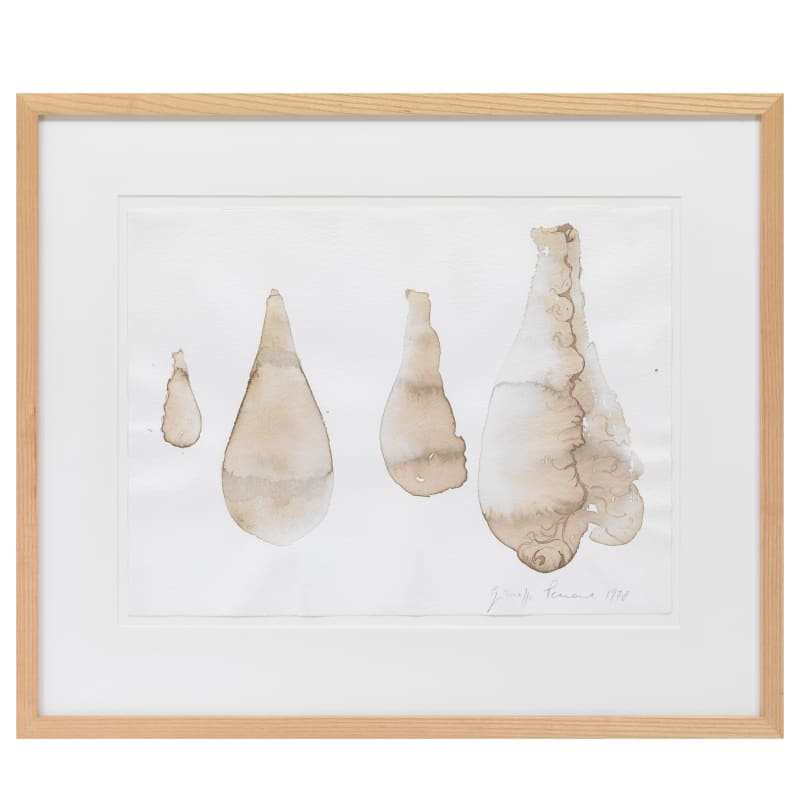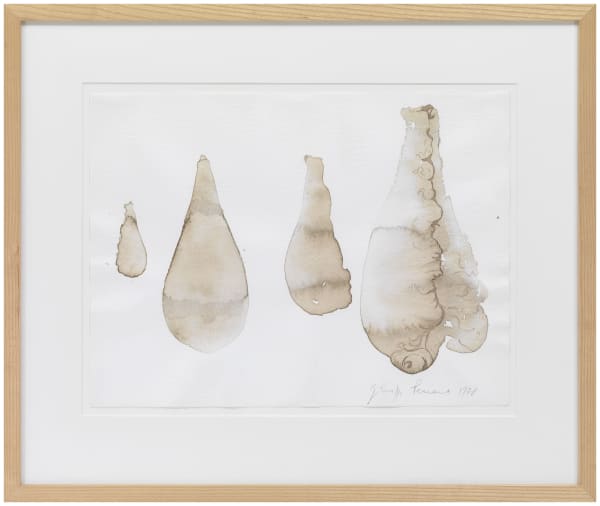Giuseppe Penone
Giuseppe Penone (b. 1947) came to prominence at the end of the 1960s when ‘arte povera’, ‘process art’ and ‘Land art’ converged to bring about a redefinition of pictorial and sculptural temperaments. Penone stands out as one of the artists most influential in challenging the thematics and nature of sculptural form. As varied as Penone’s work appears when one considers individual pieces made over the last 25 years, its central theme remains an exploration of the relationship between man and nature.
Penone grew up in Garessio, a rural community south of Turin, and his empathy with nature stems from this experience. For Penone, Nature represents the great memory, the ever-present model of the processes of change and growth that shape the individual life. His art is often concerned with the revelation and realisation in the form of sculpture of natural processes which may normally be hidden or invisible.
He has returned consistently to the tree as a model for his sculpture (and for many of his drawings and tree rubbings); its stationary, vegetal form embraces and integrates the events of its life. The tree cannot forget or dispose of the marks of time and becomes a metaphor for all systems of growth and change – and for the structure of history itself.
Another facet of Penone’s work has been to explore the apparent parallels between human physiognomy and organic forms. In his recent ‘Mind Landscape’ drawings, Penone has used strips of adhesive tape and carbon powder to trace the fissures and contours of (a cast of) the human brain. With their network of veins and dense texture, the rubbings resemble leaves or parts of vegetation. Penone seems to be drawing a parallel between the very nerve-centre of human activity, with all its functions of memory and sensation, and the organisms of the natural world.
Image: Giuseppe Penone, Study for Soffio di Creta, 1978
-
 Giuseppe PenoneStudy for Soffio di Creta, 1978Coffee, pencil, sepia, Ink on paper27.5 x 37.5 cm
Giuseppe PenoneStudy for Soffio di Creta, 1978Coffee, pencil, sepia, Ink on paper27.5 x 37.5 cm
10.8 x 14.8 in -
 Giuseppe PenoneStudy for Soffio di Creta, 1978Coffee, pencil, sepia, Ink on paper37.5 x 27.5 cm
Giuseppe PenoneStudy for Soffio di Creta, 1978Coffee, pencil, sepia, Ink on paper37.5 x 27.5 cm
14.8 x 10.8 in -
 Giuseppe PenoneStudy for Soffio di Creta, 1978Coffee, pencil, sepia, Ink on paper75 x 55.5 cm
Giuseppe PenoneStudy for Soffio di Creta, 1978Coffee, pencil, sepia, Ink on paper75 x 55.5 cm
29.5 x 21.9 in



